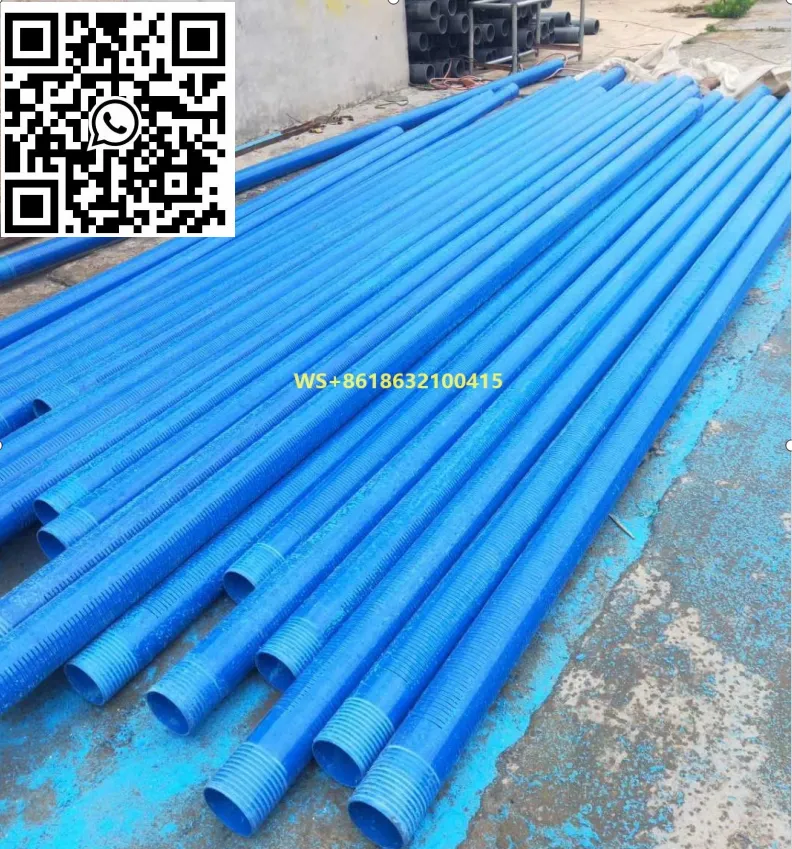Nov . 22, 2024 16:26 Back to list
Finding the Best PVC Pipe for Sale
PVC pipes are among the most popular piping materials for both residential and commercial applications due to their durability, affordability, and versatility. They come in a range of types tailored to different uses, making it easy to find a solution that meets specific project needs. This guide will explore the different types of PVC pipes, tips for finding a reliable PVC pipe supplier, and advice on finding quality PVC pipes for sale at competitive prices.

Why Choose PVC Pipes?
PVC, or Polyvinyl Chloride, is a thermoplastic material widely used for piping because of its numerous advantages:
- Durability: Resistant to corrosion, chemicals, and environmental factors, making it ideal for both indoor and outdoor use.
- Affordability: PVC pipes are often less expensive than metal pipes, providing a cost-effective solution for many projects.
- Lightweight: Easy to handle, transport, and install, which reduces labor costs and installation time.
- Versatility: Suitable for various applications, including plumbing, drainage, irrigation, and electrical conduits.
- Eco-Friendly: PVC is recyclable, which helps reduce waste and support environmental sustainability.
Different Types of Pipes PVC
There are several types of PVC pipes, each designed for specific uses. Knowing the types available can help you choose the best option for your project:
Schedule 40 PVC Pipe:
- Schedule 40is one of the most commonly used PVC pipes, recognized for its thickness and durability. It’s suitable for low-pressure applications, including drainage, irrigation, and residential plumbing.
- Applications: Home plumbing, irrigation, drainage.
- Key Feature: Lightweight and easy to work with, it’s ideal for general, non-pressurized applications.
Schedule 80 PVC Pipe:
- Schedule 80PVC is thicker than Schedule 40 and can withstand higher pressures, making it suitable for more demanding applications.
- Applications: Industrial use, high-pressure water systems, and commercial plumbing.
- Key Feature: Greater wall thickness and durability, making it suitable for high-pressure situations.
PVC Drainage Pipes (DWV):
- DWV pipes(Drain, Waste, Vent) are specially designed for removing waste and venting systems in plumbing. They are not intended for pressurized systems.
- Applications: Wastewater and sewage systems, ventilation in plumbing.
- Key Feature: Lightweight and affordable, specifically engineered for drainage and waste systems.
CPVC (Chlorinated PVC) Pipe:
- CPVC pipesare similar to PVC but chlorinated, which gives them higher temperature resistance, making them suitable for both hot and cold water.
- Applications: Residential and commercial hot water systems.
- Key Feature: High resistance to heat and chemicals, ideal for hot water systems.
Flexible PVC Pipe:
- Flexible PVChas a higher elasticity, allowing it to bend and adapt to curves. It’s often used in swimming pool systems and garden irrigation.
- Applications: Swimming pools, spas, irrigation systems.
- Key Feature: Flexible and easy to install, making it useful for systems that require bending and flexibility.
Electrical Conduit PVC:
- PVC conduit pipesare designed to protect electrical wiring. These pipes are usually gray in color and meet specific codes for electrical use.
- Applications: Electrical wiring and cable protection.
- Key Feature: Flame-resistant, non-corrosive, and designed for electrical installations.
Finding a Reliable PVC Pipe Supplier
Choosing the right PVC pipe supplier is essential to ensure that you’re getting high-quality materials at a competitive price. Here’s what to consider when selecting a supplier:
Product Variety:
- A good supplier should offer a wide range of PVC pipe typesto meet different application needs, from Schedule 40 and Schedule 80 to specialized options like CPVC and flexible PVC.
Quality Assurance:
- Reliable suppliers adhere to industry standards and provide PVC pipes that meet safety, durability, and quality benchmarks. Look for suppliers with ISO certifications or those who adhere to ASTM standards.
Customer Support and Expertise:
- A knowledgeable supplier should provide expert advice on the best PVC pipes for your project, helping you understand specifications and installation methods.
Availability and Delivery:
- For large-scale projects, a supplier’s ability to deliver on time is crucial. Opt for suppliers with a dependable logistics network and flexible delivery options, especially if you’re ordering in bulk.
Pricing and Transparency:
- Compare PVC pipe pricesfrom multiple suppliers. A reliable supplier will offer competitive pricing and clear information on bulk discounts, delivery fees, and return policies.
Customer Reviews and Reputation:
- Researching a supplier’s reputation can give insight into product quality and service reliability. Positive reviews and recommendations from other customers are good indicators of a trustworthy supplier.
Choosing the right PVC pipe supplier and understanding the various types of pipes PVC can make a big difference in the success of your project. By researching available PVC pipes for sale, comparing prices, and selecting a supplier who meets quality and service standards, you can ensure that you’re investing in durable, high-quality materials tailored to your needs.
-
Unveiling the Magic of PVC Irrigation Pipe
NewsJun.11,2025
-
Unlock Pipe Perfection with PPR Plumbing
NewsJun.11,2025
-
Unleashing the Hidden Potential of HDPE Tubing
NewsJun.11,2025
-
The New Frontier of PPR Plumbing Fittings Innovation
NewsJun.11,2025
-
Revolutionizing with PVC Tubing's Hidden Powers
NewsJun.11,2025
-
Advantages of HDPE Pipe in Potable Water Systems
NewsJun.11,2025

